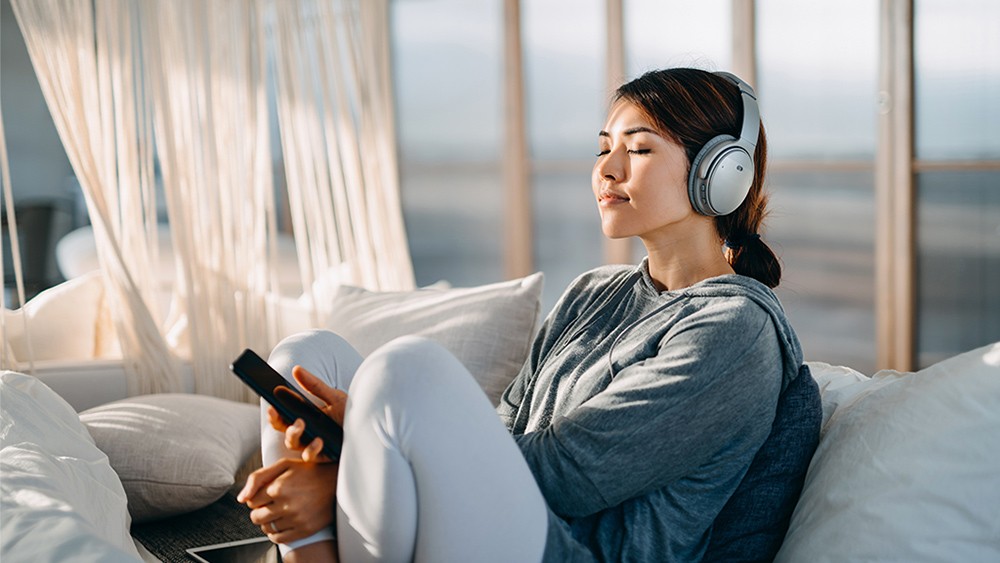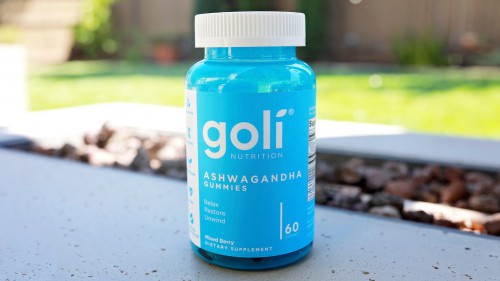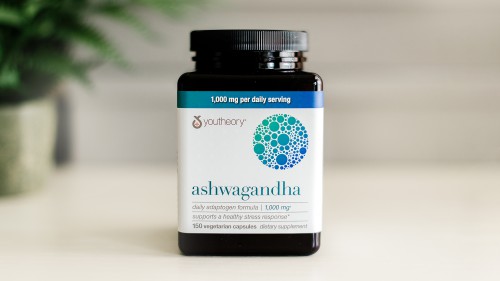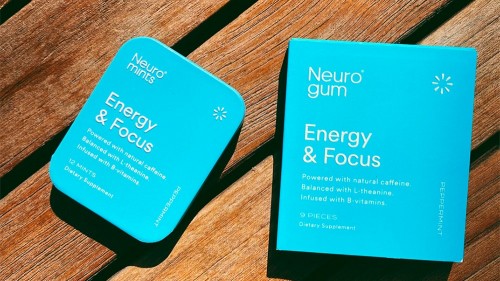10 Evidence-Based Ways to Relieve Stress and Anxiety
Published on October 14, 2021
Medically Reviewed by Anthony Dugarte, MD
While we can’t escape stress and anxiety, we can use various tools to help mitigate their adverse effects on our mind and body.


Stress and anxiety will always be a part of life. As much as we would like to have complete control over our circumstances, the reality is, we don’t.
However, we control how we respond to stress and anxiety, which can help manage these sometimes overwhelming feelings.
It’s essential to have tools and strategies to reduce stress and relieve anxiety, as this will help with your mental and physical health and well-being.
Over time, chronic stress and anxiety can increase your levels of stress hormones, leading to various health issues, including headaches, depression, and insomnia.
Having elevated levels of stress hormones may also place you at higher risk of various chronic diseases, including heart disease, diabetes, and obesity. (1)
Both stress and anxiety can feel very similar.
We’ve all been there – your heart starts to race as you’re going to be late for an important meeting, or your palms become sweaty as you wait to give an important presentation.
Stress is your body’s natural “fight or flight” response to an external situation like a work deadline.
The feeling is often accompanied by physical symptoms, including a rapid heartbeat, quickening breath, and sweating.
Stress can also induce emotional symptoms, like agitation, anger, and feeling overwhelmed.
Anxiety is your body’s natural response to stress and is characterized by persistent and excessive worrying.
While it’s normal to experience stress and anxiety now and again, there are ways to relieve stress and reduce anxiety to help manage these feelings for a healthier and happier you.
1. Exercise
One of the most effective ways to reduce stress and anxiety is to participate in some exercise regularly.
Any form of exercise, whether it’s walking or stretching, can reduce stress and provide anxiety relief in the following ways:
-
It is meditation in motion. The repetitive movement of exercise requires you to focus on your body, which shifts the focus off of your mind. While concentrating on the rhythmic movements of your body, you will often reap the same benefits of meditation during exercise. This calm, focused, relaxed state can often carry over into your other daily tasks.
-
It can increase your brain’s production of endorphins. Endorphins are the feel-good neurotransmitters in your brain. These powerful chemicals can act as natural pain killers and improve your ability to sleep, which may also help reduce stress.
-
It reduces stress hormones. Exercise lowers the levels of your body’s stress hormones, including cortisol and adrenaline, which can help you feel calm and more in control of your life.
Studies show that regular exercise is associated with a reduction in anxiety, stress, and depression. (2)
No time for a long workout? No worries. Research suggests that it’s better to walk every day for 15–20 minutes than cram a longer workout on the weekends. (3)
If you don’t love sweating it out at the gym, no problem. It’s important to find fun and enjoyable activities to increase your chances of sticking with them. For example, try dancing, a yoga video, or riding a bike.
Summary
Participating in some form of regular exercise can reduce stress hormones and increase the production of endorphins, which will provide anxiety relief and help manage stress.
Dig Deeper: How to Start Exercising
2. Spend Time with Loved Ones
While they may drive you crazy sometimes, spending time with your family and friends can help you de-stress and reduce anxiety.
Sadly, many people are more socially isolated than they’d like to be, despite having various social media connections.
A 2020 United States Bureau of Labor Statistics survey found that, on average, Americans only spent 39 minutes socializing with one another during the week and only 59 minutes on the weekends. (4)
Not only does social support help people feel less stressed and anxious, but research suggests that it can also improve your health and help you live longer. (5)
Summary
Spending time with people you love can help you to manage your stress and anxiety better. In addition, this quality time can have far-reaching health benefits that may also prolong your life.
3. Practice Mindfulness Meditation
Mindfulness is one of the most popular meditation techniques with two main parts, including attention and acceptance.
The attention part helps you focus on the present moment and involves directing your awareness to your breath, thoughts, and physical sensations within your body.
The acceptance piece involves observing those feelings and sensations without judgment.
There are many ways you can begin a mindful meditation practice. You can learn to meditate on your own, following instructions from a book or an app.
You may also seek the support of an instructor or a group to answer questions and help you stay focused and motivated.
Researchers believe that the benefits of mindfulness meditation are linked to its ability to mediate the body’s response to stress.
One 2015 comprehensive meta-analysis reviewed 209 studies and found that mindfulness meditation effectively treated various psychological issues and was particularly effective for reducing anxiety, depression, and stress. (6)
Summary
Mindful meditation involves focusing on the present moment and accepting feelings and sensations without judgment. The practice of mindful meditation is an excellent way to reduce stress and anxiety.
4. Listen to Music
Your answer to reducing stress and relieving anxiety may be found in your favorite song.
Listening to music, especially soothing music, can relax the mind, energize the body, and even help improve sleep quality.
One 2013 study found that listening to relaxing music relaxed the stress response and allowed participants to recover more quickly following a stressor versus those with no auditory stimulation. (7)
One older study investigated the effects of music on sleep quality in college students with poor sleep. Participants listened to classical music, an audiobook, or nothing at bedtime for three weeks. (8)
The study found that participants who had listened to music had significantly better sleep quality than those who had listened to the audiobook or received no intervention.
Summary
Listening to music can reduce stress and anxiety and may even improve the quality of your sleep.
5. Practice Deep Breathing
How to relieve stress and reduce anxiety may be as simple as breathing deeply.
Deep breathing is one of the best ways to lower stress in the body because it can slow your heart rate and stimulate your parasympathetic nervous system.
Your parasympathetic nervous system acts like a brake and tells your body to slow down, breathe, and relax.
In two recently published studies, researchers explored several different techniques and found that breathing exercises were most effective for immediate and long-term stress reduction.
In one 2020 clinical trial, scientists evaluated the impact of three well-being interventions, including breathing exercises, mindfulness-based stress reduction, and a program that teaches techniques to improve emotional awareness and regulation. (9)
Researchers found that the participants who practiced the breathing exercises experienced the most significant mental health, social connectedness, positive emotions, lower levels of stress and depression, and mindfulness benefits.
One 2020 randomized control trial compared deep breathing exercises to a workshop that taught more conventional, cognitive-based approaches for stress management. (10)
Researchers found that the deep breathing exercises were more beneficial for their impact on stress, mood, and conscientiousness, and these effects were even more substantial when measured three months later.
Summary
Deep breathing exercises can stimulate your parasympathetic nervous system, which helps the body slow down and relax. This appears to be an effective tool for the short and long-term management of stress.
6. Limit Alcohol and Caffeine
High doses of caffeine and alcohol can increase stress and anxiety.
Too much caffeine and too much alcohol can both increase your body’s level of cortisol, or “stress hormone.”
Prolonged elevated cortisol levels are linked with several health issues, including heart disease, anxiety, and depression. (11)
Caffeine can also affect your sleep cycles, which can increase stress and anxiety.
While alcohol has been known to reduce stress in the short term, it’s important to note that it is a sedative and a depressant, worsening anxiety in the long term.
Alcohol can alter the levels of serotonin and other neurotransmitters in your brain, which can also worsen anxiety.
Summary
Both alcohol and caffeine can increase the levels of stress hormones in the body.
Additionally, caffeine can negatively impact your sleep, and alcohol can reduce serotonin in the body, worsening anxiety.
7. Get Enough Sleep
How to reduce stress and how to manage anxiety may be a matter of improving your sleep hygiene.
Steps to improve your sleep hygiene may include eliminating light and noise, avoiding caffeine in the afternoon, and turning electronics off at least 30 minutes before bedtime.
One 2019 study investigated the role of sleeplessness on anxiety. (12)
Researchers found that anxiety levels increased by 30% in sleep-deprived participants. In contrast, anxiety levels dropped after a night of sufficient, deep sleep.
Researchers suggested that deep sleep can restore the brain’s ability to regulate emotions, preventing anxiety levels from worsening.
Summary
Getting a good night’s sleep may help your brain regulate your emotions more effectively, decreasing feelings of anxiety and stress.
8. Eat Well-Balanced Meals
If you are looking for ways to reduce stress and anxiety, look no further than your pantry and refrigerator.
Stress and anxiety can negatively affect blood flow to the brain, and in turn, your brain health.
Certain nutrients can help improve blood flow to the brain, which may help to reduce feelings of stress and anxiety.
Omega-3 fatty acids have long been studied for their effects on mental health.
One 2014 study found that eating Omega-3-rich foods like salmon three times per week was an effective way to reduce anxiety. (13)
Other foods high in omega-3 fatty acids include mackerel, flaxseeds, chia seeds, walnuts, and soybeans.
Additionally, increasing your fruit and vegetable intake may help reduce stress.
One 2021 study published in Clinical Nutrition analyzed data from roughly 9,000 people to assess how fruit and vegetable intake was associated with stress levels. (14)
Researchers found that the group with the highest fruit and vegetable intake (about six servings per day) had 10% lower perceived stress levels than those who ate three servings of fruit and vegetables or less per day.
Summary
Eating a well-balanced diet containing plenty of fruits and vegetables and rich sources of omega-3 fatty acids may improve your mental health by reducing stress levels and providing anxiety relief.
9. Laugh More Often
Your favorite comedy movie or book may help you reduce stress and anxiety.
Laughter has been shown to mitigate the effects of stress on the body by decreasing levels of stress hormones, including cortisol and epinephrine.
Research suggests that the physical act of laughing is linked to chemical changes in the body that can potentially reduce stress and even increase pain tolerance. (15)
Summary
Laughter is linked with decreasing stress hormones in the body and is a fun way to help mitigate the effects of stress and anxiety.
10. Express Gratitude
Expressing gratitude can have far-reaching health benefits.
Not only does this practice improve your mental health, but it can also improve your physical health and even the quality of your sleep.
Studies suggest that gratitude is linked to the systems in your brain that regulates emotions and supports stress relief. (16)
When stimulated, these areas of the brain can increase positive emotions and reduce feelings of anxiety and stress, leading to a calmer and more relaxed state.
Expressing gratitude can take on many different forms. For example, you may choose to begin a gratitude journal where you reflect on and write down several things you are grateful for every day.
Additionally, you may write a gratitude letter to someone you are grateful for but haven’t explicitly expressed your appreciation for them.
Summary
Expressing gratitude, whether in a journal or through a letter, can reduce feelings of stress and anxiety, leading to a calmer and more relaxed state.
The Bottom Line
Without proper management, stress and anxiety can harm your mental and physical health.
While some amount of stress and anxiety in life is expected, it’s vital to seek out ways that may help provide relief.
From exercise to connecting with a friend, stress and anxiety relief can come in many forms and provide other far-reaching health benefits.
At WellnessVerge, we only use reputable sources, including peer-reviewed medical journals and well-respected academic institutions.
- The effects of chronic stress on health: new insights into the molecular mechanisms of brain–body communication - PMC:
https://www.ncbi.nlm.nih.gov/pmc/articles/PMC5137920/ - Exercise and mental health:
https://pubmed.ncbi.nlm.nih.gov/29150166/ - Walking facilitates positive affect (even when expecting the opposite):
https://pubmed.ncbi.nlm.nih.gov/27100368/ - United States Bureau of Labor Statistics: American Time Use Survey — May to December 2019 and 2020 Results:
https://www.bls.gov/news.release/pdf/atus.pdf - Social Relationships and Mortality Risk: A Meta-analytic Review:
https://journals.plos.org/plosmedicine/article?id=10.1371/journal.pmed.1000316 - Mindfulness-based therapy: A comprehensive meta-analysis:
https://www.sciencedirect.com/science/article/abs/pii/S0272735813000731?via=ihub - The Effect of Music on the Human Stress Response:
https://journals.plos.org/plosone/article?id=10.1371/journal.pone.0070156 - Music improves sleep quality in students:
https://onlinelibrary.wiley.com/doi/10.1111/j.1365-2648.2008.04602.x - Promoting Mental Health and Psychological Thriving in University Students: A Randomized Controlled Trial of Three Well-Being Interventions:
https://www.frontiersin.org/articles/10.3389/fpsyt.2020.00590/full - Improvements in well-being and cardiac metrics of stress following a yogic breathing workshop: Randomized controlled trial with active comparison:
https://www.tandfonline.com/doi/abs/10.1080/07448481.2020.1781867?journalCode=vach20 - Stress and hormones:
https://www.ijem.in/article.asp?issn=2230-8210;year=2011;volume=15;issue=1;spage=18;epage=22;aulast=Ranabir - Overanxious and underslept:
https://www.nature.com/articles/s41562-019-0754-8 - Reduced anxiety in forensic inpatients after a long-term intervention with Atlantic salmon:
https://pubmed.ncbi.nlm.nih.gov/25431880/ - Fruit and vegetable intake is inversely associated with perceived stress across the adult lifespan:
https://www.clinicalnutritionjournal.com/article/S0261-5614(21)00192-8/fulltext - The Laughter Prescription:
https://www.ncbi.nlm.nih.gov/pmc/articles/PMC6125057/ - The Science of Gratitude:
https://ggsc.berkeley.edu/images/uploads/GGSC-JTF_White_Paper-Gratitude-FINAL.pdf






